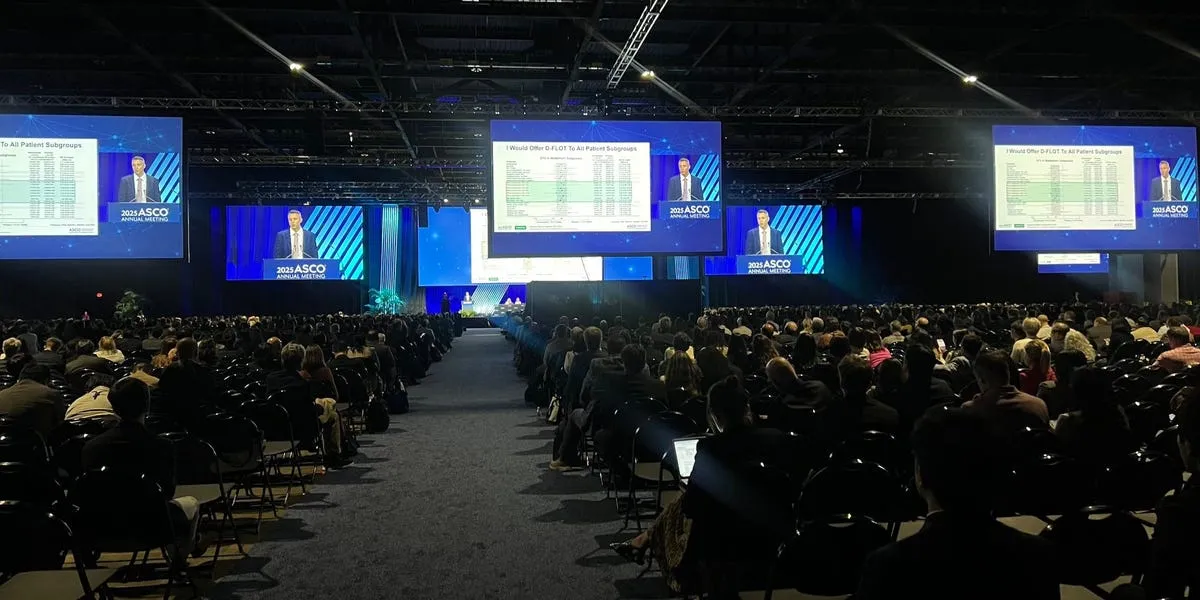
Recently, I found myself immersed in what felt like an entirely different realm—cancer research. This extraordinary experience took place at the American Society of Clinical Oncology (ASCO) annual meeting held in Chicago, specifically at McCormick Place, the largest convention center in North America. The venue buzzed with leading cancer experts from across the globe. Over the course of four days, around 44,000 attendees, including doctors, drug manufacturers, scientists, and patients, gathered in person and online to exchange vital information, discuss innovative treatments, and explore methods to combat cancer more effectively.
Among the plethora of groundbreaking ideas presented, two significant announcements stood out, igniting applause and cheers from the audience. These revelations inspired many doctors to reconsider their treatment approaches, fostering a vision for a more intelligent and targeted future in cancer treatment and prevention.
One of the most astonishing presentations at ASCO this year came from a team of Canadian researchers who demonstrated that a carefully prescribed exercise regimen could outperform costly chemotherapy for patients who had previously undergone treatment for colon cancer. Dr. Paul Oberstein, a medical oncologist at NYU Langone, expressed his astonishment, stating, "This is so new and different and really incredible." While doctors often recommend exercise to cancer patients, rigorous scientific studies on its effectiveness have been scarce—until now.
The research, conducted by Queen's University in Ontario, involved nearly 900 colon cancer patients in a randomized gold-standard trial. Each participant had their cancer surgically removed and had completed chemotherapy. The primary aim of the exercise program was to prevent recurrence in high-risk stage 2 and stage 3 colon cancer patients while improving their survival rates.
In the study, half of the patients received standard exercise advice, while the other half followed a personalized exercise prescription crafted by a trainer or physical therapist. This tailored regimen was designed to be enjoyable and sustainable. Activities varied widely; some patients kayaked, others biked or swam, but most engaged in simple brisk walks lasting 45 to 60 minutes a few times a week.
After three years of consistent exercise, the results were remarkable. Patients participating in the exercise program exhibited disease-free survival rates comparable to, and in some cases better than, those achieved through traditional chemotherapy treatments like Oxaliplatin, which can cost between $3,000 and $6,000 per treatment. Notably, the exercise program provided a 7% survival boost after eight years, whereas Oxaliplatin offered only a 5% boost over ten years.
Dr. Chris Booth, the lead researcher, highlighted the profound impact of the exercise program, stating, "For every 16 patients exercising, exercise prevented one case of cancer." The enthusiasm in the room was palpable, culminating in a standing ovation for Booth's presentation. Many oncologists began to ponder the feasibility of integrating such a program into their practices, contemplating the potential for grants or patient support to facilitate the necessary resources.
The second major highlight of ASCO focused on advancements in immunotherapy. This innovative approach aims to harness the body's immune system to tackle earlier-stage cancers, with promising results emerging. AstraZeneca emerged as a frontrunner, showcasing a series of significant presentations centered on using immunotherapy drugs for breast, gastric, and lung cancer survival.
AstraZeneca's drug, Imfinzi (durvalumab), generated considerable excitement. This treatment, which trains the immune system to target specific cancer proteins, is already employed in late-stage cancers but has not been a standard treatment for early-stage diseases. Data from AstraZeneca's late-stage phase-3 Matterhorn trial revealed that when Imfinzi was administered alongside chemotherapy after surgery, gastric cancer patients experienced a substantial increase in two-year survival rates—from 70% without immunotherapy to nearly 76% with it.
This breakthrough exemplifies a growing trend among drug manufacturers to explore early immune therapy treatments. These therapies have the potential to complement, or in some exceptional cases, entirely replace traditional options like radiation and chemotherapy. The goal is to reduce the long-term side effects often associated with conventional cancer treatments while simultaneously enhancing patient outcomes.
In a recent study published by doctors at Memorial Sloan Kettering, it was revealed that a monoclonal antibody treatment, typically reserved for advanced-stage cancers, was able to completely replace chemotherapy in early-stage mismatch repair-deficient rectal tumors. Dr. Andrea Cercek emphasized the groundbreaking nature of these results, stating, "Everyone's organs were completely preserved—very minimal toxicity."
AstraZeneca's senior vice president, Mohit Manrao, envisions a future where immunotherapy serves as a complementary approach to traditional treatments. "Old-school treatments like chemotherapy and radiation go after cancer directly, whereas the newer drugs engage the immune system to do the work," he explained. The push is clear: there is a critical need to extend treatment efforts beyond metastatic cancers and into early disease stages, where the potential for a cure is significantly higher.